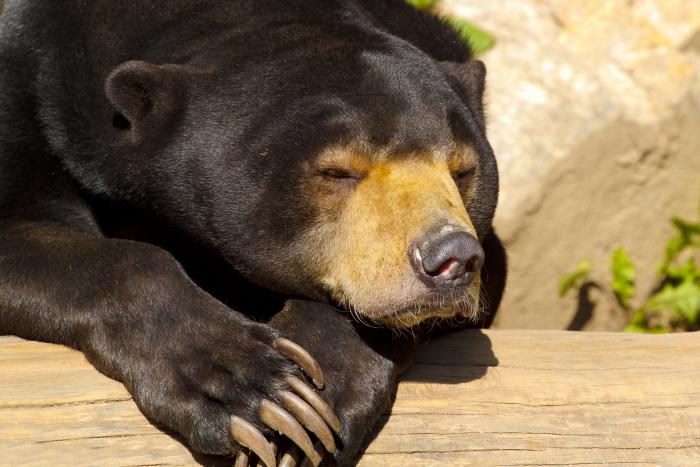
Zoology BSc (Hons)
-
Every aspect is great.
← | →
-
Enthusiastic, active, sociable
← | →
-
The atmosphere of the whole uni is great. Everyone is very friendly and helpful.
← | →
Bachelor's degree
In Cambridge

Study with Anglia Ruskin University and benefit from their experience!
-
Type
Bachelor's degree
-
Location
Cambridge
-
Duration
3 Years
Immerse yourself in the lives and behaviour of animals on our Royal Society of Biology-recognised degree. You’ll study in a world-renowned centre of wildlife conservation, and get practical skills in our laboratories that you can apply on a range of field trips in the UK and abroad. This course has been validated to include an optional Sandwich Placement year in industry.
If you’re interested in a career exploring and understanding the lives of animals, you’ll be in good company – alongside Charles Darwin, Dian Fossey, Jane Goodall and David Attenborough.
Zoology is closely connected to subjects such as cell biology and genetics. You could choose to specialise in areas such as animal behaviour, wildlife biology or ecology and conservation.
Do not miss this chance and study with ARU! Ask for more information through Emagister's website!
Facilities
Location
Start date
Start date
About this course
Our course will open up a world of professional careers relating to the biology of animals. You’ll have good general training as a scientist, so you could choose to work in the field, in the laboratory, or both – and anywhere in the world.
After graduating, you might work for a zoo, a government agency, an environmental consultancy, a wildlife conservation organisation, or an education or research establishment. Graduates of this course have gone to work for leading zoos, the RSPB, local wildlife trusts, the BBC Natural History Unit, and fieldwork and research teams in exciting places from Costa Rica to Africa.
We’ll encourage you to do voluntary or paid work at every opportunity will build your practical experience and help to attract employers. For example, you could support your local wildlife trust.
As a graduate of this course, you’ll be able to apply for membership of the Zoological Society of London, the Royal Society of Biology, and other professional organisations.
Graduation doesn’t need to be the end of your time with us. If you’d like to continue your studies we offer a wide range of full-time and part-time postgraduate courses including MSc Animal Behaviour: Applications for Conservation and MSc Applied Wildlife Conservation.
Field work is an important part of zoology. It’s a practical subject and we’ll give you plenty of opportunities to learn and practise both in the lab and the field. In your second year you’ll take a week-long field trip to north Devon to experience both marine and terrestrial zoology, the costs of which are included in your course fees. On our optional field trips you might experience rutting red deer on the island of Rum; marine biology in Scotland; world-class zoos in the Netherlands; wildlife and ecology in Africa; and diving and marine biology in the Red Sea. You’ll need to pay for these trips.
Cambridge is becoming a world centre for wildlife conservation, with Fauna and Flora International, Birdlife International and the World Conservation Monitoring Centre based here. You’ll have opportunities to attend lectures and visit specialist museums and libraries in the city. If you’re interested in captive animal behaviour, you can access the facilities at the College of West Anglia, Cambridge.
Our course is recognised by the Royal Society of Biology's degree-recognition scheme.
Reviews
-
Every aspect is great.
← | →
-
Enthusiastic, active, sociable
← | →
-
The atmosphere of the whole uni is great. Everyone is very friendly and helpful.
← | →
Course rating
Recommended
Centre rating
A
Ophelia
frances
Beatriz
Charlotte
This centre's achievements
All courses are up to date
The average rating is higher than 3.7
More than 50 reviews in the last 12 months
This centre has featured on Emagister for 15 years
Subjects
- Animal Nutrition
- Animal Behaviour
- Biology
- Ecology
- Biodiversity
- Animal Care
- Genetics
- Animal Biology
- Zoology
- Conservation
- Wildlife Conservation
- Core Biology
Course programme
Year one, core modules
- Animal Form and Function
- Biomeasurement
- British Wildlife and Conservation
- Core Biology
- Ecology
- Introduction to Animal Behaviour and Welfare
- Animal Behaviour in Context
- Introduction to Marine Biology
- Invertebrate Biology
- Practical Biology
- Principles of Genetics and Evolution
- Vertebrate Biology
- Applied Ethology and Animal Welfare
- BioGIS
- Biological Oceanography
- Communities and Ecosystems
- Evolution of Behaviour
- Parasitology
- Mammalogy
- Undergraduate Major Project
- Wildlife Conservation
- Behaviour and Management of Zoo Animals
- Behavioural Ecology
- Biogeography
- Countryside Management
- Domestication and the Behaviour of Domestic and Captive Animals
- Practical Marine Biology
- Population Ecology and Wildlife Management
- Tropical Ecology and Management
Throughout the course, we’ll use a range of assessment methods to help you measure your progress. Besides exams, these include essays, practical reports, computer-based assessments, presentations, debates, classroom- or laboratory-based tests, and reviews of scientific papers.
Zoology BSc (Hons)
